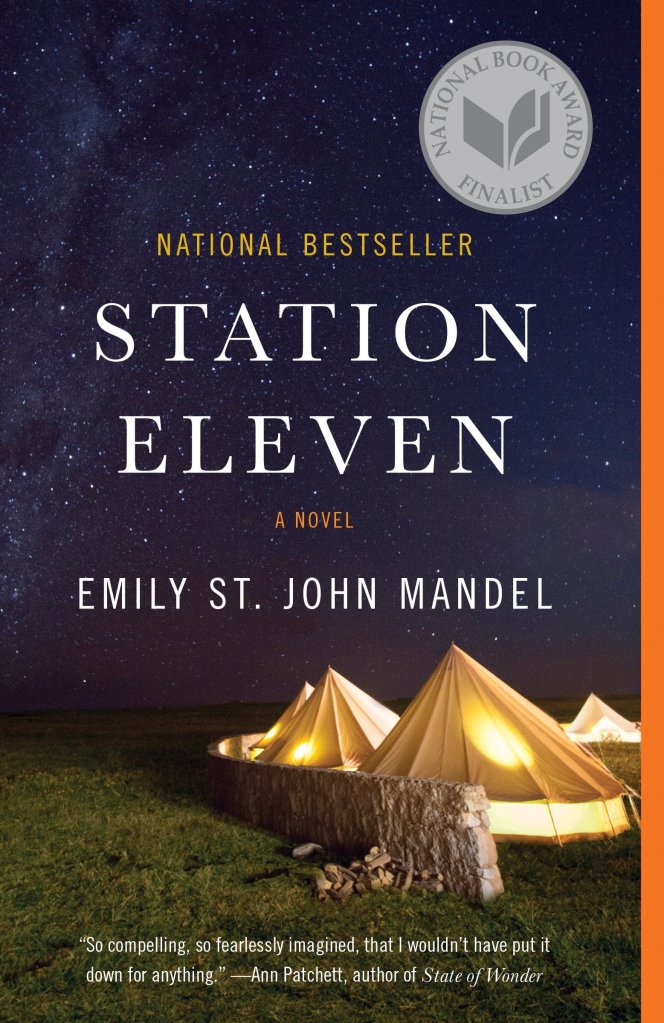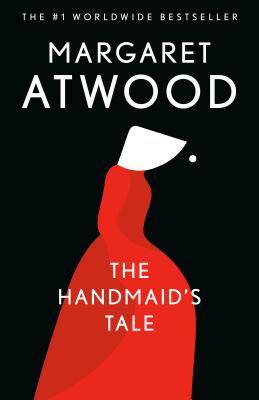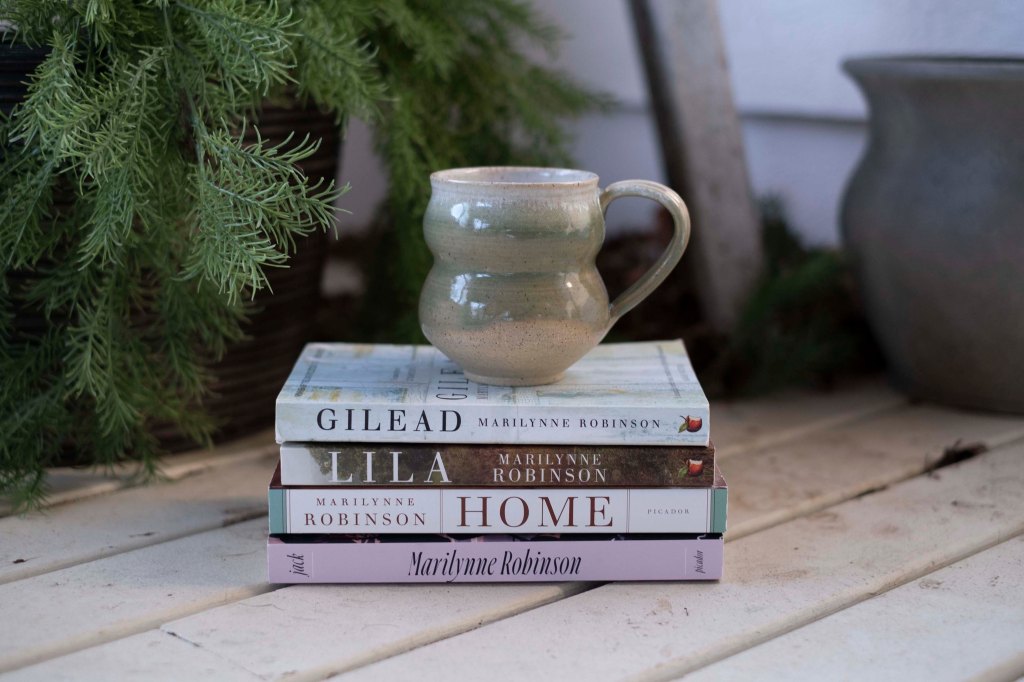
Okay, it’s been quite a while since my last post. That’s partly because there’s been a lot going on (Springtime! Olympics! Travel!) and partly because I held off on reviews until I finished all four of Marilynne Robinson’s novels set in the fictional town of Gilead, Iowa. Now that I’ve finished, it’s time for a combined recap and some stack ranking.
But before I go there, it needs to be said that Robinson’s writing, across all four books, is impressive: it’s eloquent, natural, timeless, and thought-provoking. I paused more than once just to take in the loveliness of her writing.
Secondly, I loved all four books for daring to take on really big, universal themes: love, family, race, class, forgiveness, religion. Robinson’s novels seem to acknowledge, whether implicitly or explicitly, that these themes touch all of our lives in different—yet equally meaningful—ways.
Finally, I want to say that across all four books, I fell in love with with characters Robinson created. They are flawed but they feel realistic and consistent. They are relatable and complex.
But as for my ranking of the four books, here it goes:
My number one favorite was Home. This is a story primarily about siblings and that hits close to home for me. The main themes are similar to the other three books—forgiveness, empathy, love, family—but it was the siblings’ loyalty and the growth of their relationship in this story that resonated with me.
Also, in terms of both character and plot development, I thought Home was by far the most nuanced, complicated, and realistic. Our principle characters – Jack, Glory, Boughton, and John Ames – have relationships fraught with troubled, sensitive histories. Throughout the novel I felt I could consistently feel those tensions boiling just beneath the surface of things, coming to a head in convincing and interesting ways.
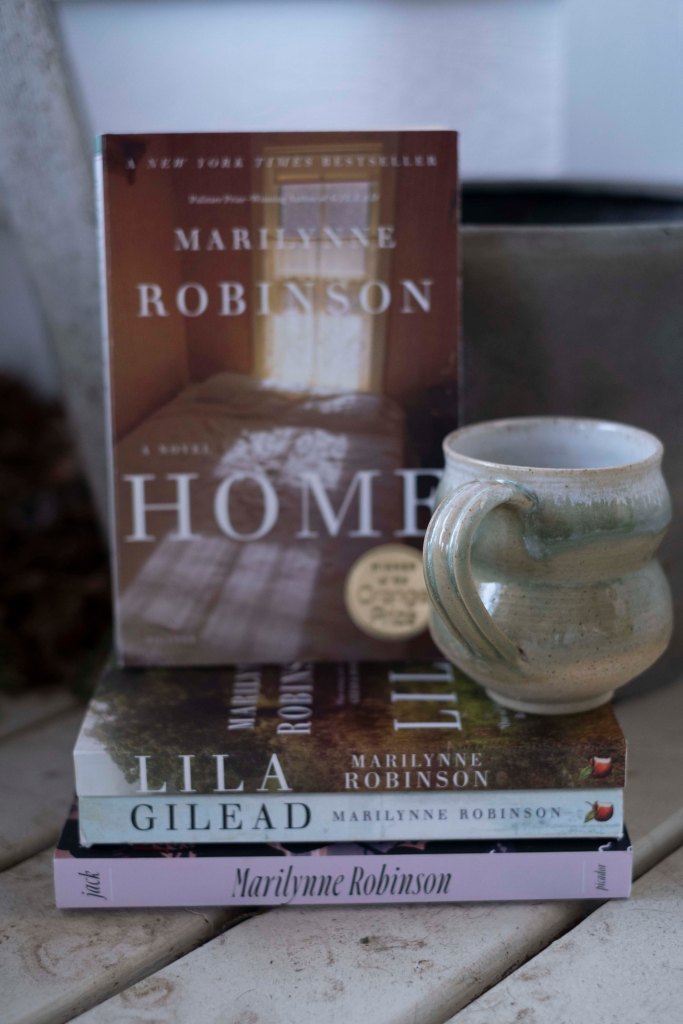

In a close second place I’d put Gilead. The format (a long letter from father to son) hooked me at the start and the principle themes came through so powerfully that I was committed to reading the rest of the series. Also, being the first of Marilynne Robinson’s novels that I’d read, I was in my honeymoon period here, still swooning over her easy, eloquent writing.
Third…we’ll this is hard because Lila and Jack were super close for me. But ultimately I would have put Lila in third and Jack in fourth, only because Lila is set in Gilead and features many of the same cast of characters as Home and Gilead. Like Jack, it’s really backstory to the previous novels, never coming into the present day that the first two explore.
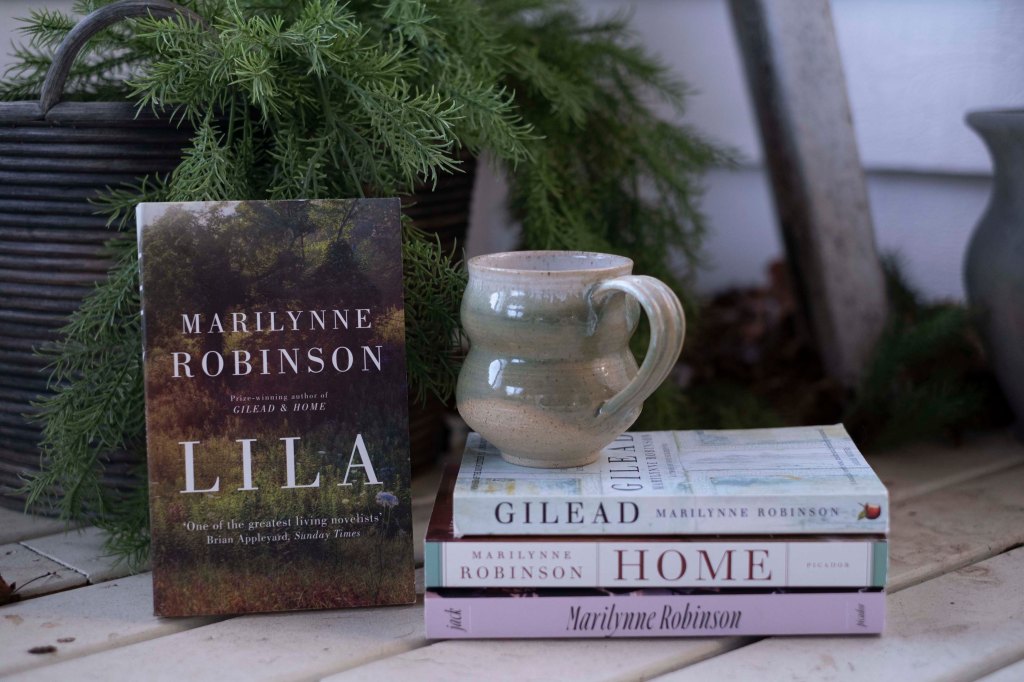

Admittedly, I was most excited for Jack, because throughout the other three novels, he’s undeniably the most controversial character. But while Jack’s backstory was interesting and beautifully written, I didn’t feel I learned anything new about Jack, and so I was slightly less entertained by his personal history than I was of his role in Home or Gilead.
All in all, these were wonderful novels, and Marilynne Robinson’s writing proved itself timeless and skilled. I’d definitely recommend these novels – especially Home and Gilead – to anyone who doesn’t mind a character-driven novel and is looking for a lovely, subtle family story. You can find all four books on my bookshop page.
And if you’re wondering where you can find a beautiful ceramic mug like the one featured in these photos (the one that was filled with coffee as I read through each of these wonderful books), look no further than Sound Ceramics. It’s my absolute favorite, local ceramics store. Be sure to check them out!



